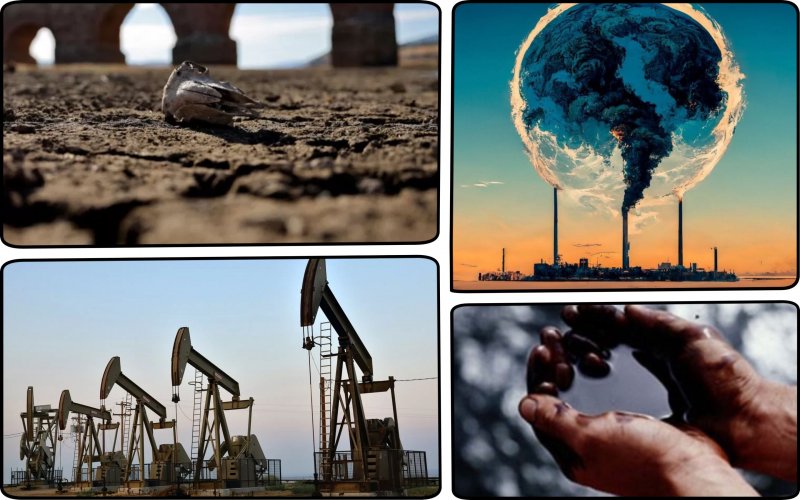A study of archival documents and articles in the United States has shown that the oil and gas industry has been informed about the potentially dire consequences of fossil fuel combustion for the climate since 1954.
According to experts, the fossil fuel industry was directly involved in the birth of modern climate science, and denied it to delay the climate crisis, The Guardian reports.
It is noted that a coalition of oil and automotive companies has funded research by leading scientist Charles Keeling on carbon measurement since 1954. Fossil fuel interests were supported by the Air Pollution Fund group.
"The possible consequences of changes in the concentration of CO2 in the atmosphere in terms of climate, rates of photosynthesis, and equilibrium with the carbonate of the ocean may ultimately prove to be very important for civilization," Caltech researcher Samuel Epstein said in November 1954.
The fund was financed by 18 car companies, including Ford, Chrysler and General Motors, banks and retailers. The American Petroleum Institute (API), the leading US oil and gas lobbying body, and the Western Oil and Gas Association, now the Western States Petroleum Association, were also named as major contributors to the fund in a 1959 memo.
Experts analyzed public and private records. They found that major oil companies had been conducting their own research on the effects of burning their product for decades, often to an incredibly precise degree. For example, Exxon scientists made "remarkably accurate" predictions of global warming in the 1970s and 1980s.
It says that the level of CO2 in the Earth's atmosphere is currently 422 parts per million, almost a third higher than the first reading taken in 1958, and 50% higher than pre-industrial levels.
According to Carroll Muffett, executive director of the Center for International Environmental Law, the oil and gas industry first engaged in research related to smog and other direct air pollution, and then began to study the related effects of climate change.
He emphasized that the documents add additional impetus to efforts in various jurisdictions to hold oil and gas companies legally responsible for damages caused by the climate crisis.
"These papers show that CO2 emissions have planetary consequences, which means that the industry realized very early on that burning fossil fuels has profound consequences on a planetary scale," said Muffett. "There is strong evidence that the oil and gas industry has misled the public and regulators about the climate risks of its products for 70 years. It's silly to trust them to be part of the solutions. We're now in an era of accountability."
Earlier, Ecopolitic wrote, that the study of the leading climatologist James Hansen showed that emissions from the burning of fossil fuels and the El Niño climate phenomenon will lead to an increase in temperature by 1.7°C already in May 2024 year.
As EcoPolitic previously reported, the Report of the consulting company Oliver Wyman and the team of the World Economic Forum showed that climate change could cause up to 14.5 million deaths worldwide by 2050.





